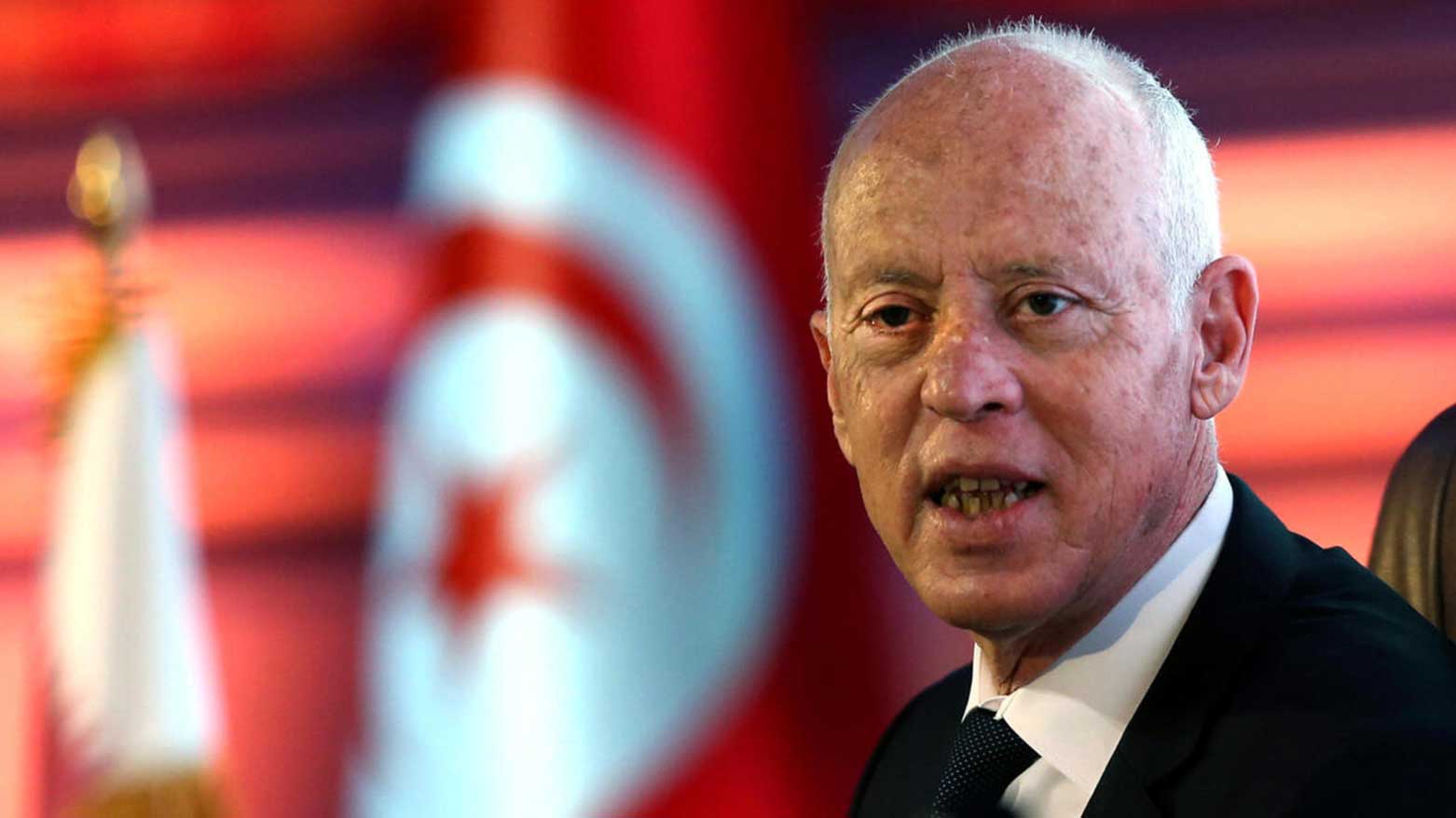Tunisia Issues First Death Sentence Over Social Media Posts Deemed Offensive to President Kais Saied
The case highlights growing concerns over Tunisia’s 2022 cybercrime law, which rights groups say is being used to silence critics and stifle free speech.

ERBIL (Kurdistan24) — A Tunisian court has sentenced a 51-year-old man to death over Facebook posts deemed offensive to President Kais Saied and threatening to state security — a verdict lawyers and rights advocates say marks an alarming escalation in Tunisia’s clampdown on free expression.
According to his lawyer, Saber Chouchen was convicted Wednesday on three charges: attempting to overthrow the state, insulting the president, and spreading false information online.
Judges ruled that his posts incited violence and chaos and violated Tunisia’s penal code and the controversial 2022 cybercrime legislation known as Decree 54.
The ruling is the first death sentence of its kind in Tunisia’s modern history for online speech. While capital punishment remains legal, no execution has taken place since 1991.
A Vulnerable Man Caught in a Political Crackdown
Chouchen, a father of three and an occasional day laborer, has been detained since January 2024. His lawyer, Oussama Bouthelja, described him as a man of limited education and modest means who suffered a permanent disability after a workplace accident.
“Most of the content he shared was copied from other pages, and some posts received no engagement at all,” Bouthelja told AP. “In court, he explained that his intent was not to incite unrest, but to draw attention to his difficult living conditions.”
Rights groups say his case reflects how Tunisia’s cybercrime law — officially intended to combat misinformation — has instead become a powerful tool for silencing dissent.
Decree 54 criminalizes the dissemination of any content deemed harmful to “public safety or national defense” and has been widely used against journalists, lawyers, and opposition figures since its enactment.
Widening Use of the Courts to Silence Critics
The death sentence comes amid a broader campaign of repression against President Saied’s critics. In April, a Tunisian court handed dozens of opposition figures sentences ranging from 13 to 66 years in prison in what activists called a politically motivated trial.
Those convicted included former lawmakers, diplomats, journalists, and human rights defenders accused of “conspiracy against state security” and “belonging to a terrorist group.”
Among them was former legislator Said Ferjani, who received a 13-year sentence — a verdict his daughter denounced online as part of “yet another fabricated conspiracy case.”
Tunisian authorities defended the rulings, saying the defendants were “traitors and terrorists.” However, the United Nations Human Rights Office and international watchdogs have accused Saied’s government of using the judiciary to crush dissent since he seized extraordinary powers in July 2021, dissolving parliament and ruling by decree.
From the Arab Spring to Authoritarian Revival
Once celebrated as the lone success story of the Arab Spring, Tunisia has in recent years witnessed a dramatic reversal of its democratic gains. Since consolidating power, President Saied has rewritten the constitution, sidelined political parties, and curtailed press freedom — drawing comparisons to the pre-2011 police state.
A Human Rights Watch report published earlier this year said Tunisian authorities have “expanded the use of politically motivated arrests and prosecutions to intimidate and silence critics,” targeting lawyers, judges, and journalists.
Rights advocates warn that Chouchen’s death sentence could mark a turning point in Tunisia’s authoritarian slide.
“This verdict sends a chilling message to anyone who dares to criticize the government online,” said one Tunis-based legal observer, who asked AP not to be named for safety reasons. “It is not only disproportionate — it is meant to instill fear.”
For now, Tunisia has not executed anyone in over three decades. But the reintroduction of the death penalty in political cases, even symbolically, underscores what many see as the final dismantling of Tunisia’s post-revolution freedoms.
As one activist wrote on social media: “A man is condemned to die for Facebook posts. This is not the Tunisia we fought for in 2011.”